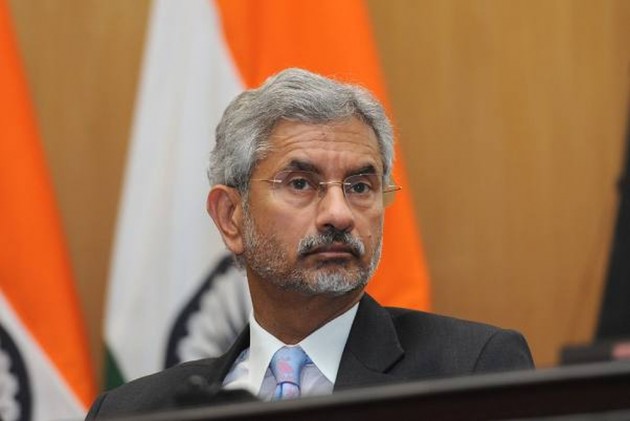
‘Snakes in backyard’: Jaishankar uses Hillary Clinton’s analogy to hit out at Pakistan

External Affairs Minister S Jaishankar on Thursday (December 15) invoked former US secretary Hillary Clinton’s ‘snake’ analogy to back his argument against Pakistan as a breeding ground for terrorism.
Responding to a question on Pakistan minister Hina Rabbani Khar’s recent comment about a dossier on India, Jaishankar said it reminds him of Clinton’s blunt message to India’s neighbour in a visit in 2011 that snakes in one’s backyard will eventually bite those who keep them.
Also read: Nation that hosted Osama can’t sermonise on Kashmir: Jaishankar’s dig at Pakistan
India’s foreign minister was addressing reporters at the UN headquarters after chairing a signature event held under India’s presidency of the Council on ‘Global Counterterrorism Approach: Challenges and Way Forward’.
“I saw, I read the reports on what minister Khar said. And I was reminded, more than a decade ago, my memory serves me right. Hillary Clinton was visiting Pakistan. And Hina Rabbani Khar was a minister at that time. Standing next to her, Hillary Clinton actually said that if you have… snakes in your backyard, you can’t expect them to bite only your neighbours. Eventually, they will bite the people who keep them in the backyard. But as you know, Pakistan is not great at taking good advice. You see what’s happening there,” Jaishankar recalled.
During her visit to Islamabad in October 2011, Clinton had addressed the media with Pakistan’s then Foreign Minister Khar and said, “It’s like that old story – you can’t keep snakes in your backyard and expect them only to bite your neighbours. Eventually those snakes are going to turn on whoever has them in the backyard.”
Clinton made the analogy while talking about the US’ request to Pakistan to cooperate to “squeeze the Haqqani network and other terrorists.”
Jaishankar said, true to what Clinton hinted, the world today sees Pakistan as an epicentre of terrorism.
Also read: Cost must be imposed on nations which aid terrorism under foreign policy: Modi
“Now I know we’ve been through two-and-a-half years of COVID and a lot of us have brain fog as a result. But I assure you the world has not forgotten where does terrorism (emanate), who has their fingerprints over a lot of activities in the region and beyond the region. So I would say that it’s something which they should remind themselves before indulging in the kind of fantasies which they do,” he added.
Pakistan shared a “dossier” of India’s alleged involvement in a blast outside Mumbai attack mastermind Hafiz Saeed’s residence in Lahore on June 23 last year.
‘Asking the wrong minister about terrorism’
When asked by a Pakistani journalist on how long South Asia is going to see terrorism disseminating from New Delhi, Kabul and Pakistan, Jaishankar said, “You know, you’re asking the wrong minister when you say how long will we do this? Because it is the ministers of Pakistan who will tell you how long Pakistan intends to practice terrorism. At the end of the day, the world is not stupid, the world is not forgetful. And the world does increasingly call out countries and organisations and people who indulge in terrorism,” he said.
“By taking that debate elsewhere, you are not going to hide it. You’re not going to confuse anybody anymore. People have figured it out. So, my advice is please clean up your act. Please try to be a good neighbour. Please try and contribute to what the rest of the world is trying to do today, which is economic growth, progress, development,” Jaishankar said.
“I hope through your channel that message goes.”
Opinion: Not much to do at G20 but Modi will gain internally from presidency
In response to a question on concerns over Taliban in Afghanistan supporting terror groups like Al Qaeda, Jaishankar said after the Taliban takeover of Kabul in August last year, the Security Council had expressed concerns of the international community in regards to Afghanistan as a whole through a resolution.
“I think that remains very much the sentiment and outlook of the international community. One of the key expectations there is that Afghanistan will not again serve as a base for terrorism against other countries, and we expect whoever has authority in Afghanistan to respect and honour that,” he said.
The Security Council, in its resolution 2593 (2021) that was adopted under India’s August 2021 presidency of the Council, had said that Afghan soil should not be used for terrorism, to threaten or attack any country, to shelter or train terrorists or to plan or finance terrorist acts.
(With inputs from agencies)


